Jacke Wilson's Blog, page 15
April 13, 2022
The History of Literature #384 – A Writer’s Tools – Top 10 Literary Terms and Devices | PLUS F. Scott Fitzgerald’s Writing Advice
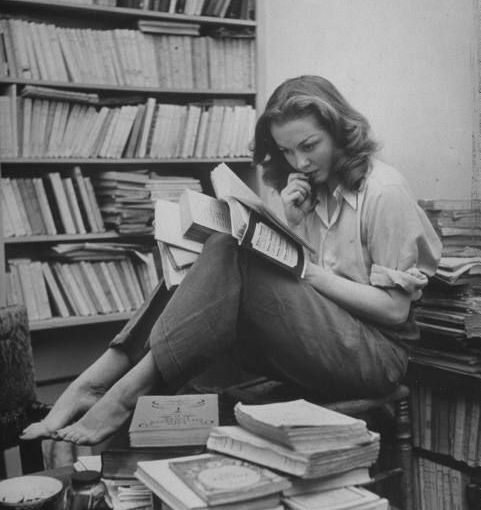
Mike Palindrome, the President of the Literature Supporters’ Club, joins Jacke to select the top 10 literary terms and devices of all time. PLUS Jacke reads a letter to a young writer from F. Scott Fitzgerald.
Additional listening ideas:
Fan of Fitzgerald? Try our episode on The Great Gatsby or revisit the time Jacke and Mike looked for 10 new arguments in the Hemingway vs. Fitzgerald debate.More of a Hemingway fan? A full-of-nostalgia Jacke dug into Hemingway and The Sun Also Rises in Episode 162.Had enough of the Lost Generation? Try zooming back thousands of years to learn more about the amazing Enheduanna, the Mesopotamian high priestess who was also the first known poet whose name was recorded.Help support the show at patreon.com/literature or historyofliterature.com/shop. The History of Literature Podcast is a member of Lit Hub Radio and the Podglomerate Network. Learn more at www.thepodglomerate.com/historyofliterature.
April 12, 2022
The History of Literature #383 – The Radical Woman Who Wrote ‘Goodnight Moon’ – The Story of Margaret Wise Brown (with the New Yorker’s Anna Holmes)
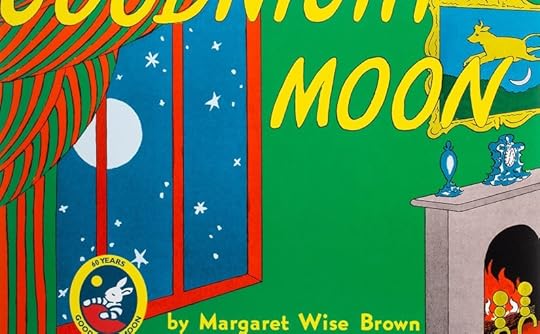
“Goodnight comb and goodnight brush…And goodnight to the old lady whispering hush…Goodnight moon..”
Telling the “story” of a darkening room at bedtime, Goodnight Moon (1947) has gone from near obscurity to selling close to a million copies a year. But if you thought – as Jacke did – that the author of this odd, quiet book was probably something of a quiet old lady whispering hush herself, you couldn’t be more wrong. Margaret Wise Brown was radical young woman who blew her money on furs and trips to Europe, had long-term relationships with both men and women, and spent her weekends hunting rabbits. In this episode, Anna Holmes, who wrote about Margaret Wise Brown for the New Yorker, joins Jacke to discuss the surprising story behind a beloved children’s classic.
Be sure to read Anna Holmes’s essay about Margaret Wise Brown’s life and works in the New Yorker.
Additional listening ideas:
Like children’s literature? You might enjoy our episodes on Beatrix Potter and Roald Dahl.Learn more about Margaret Wise Brown’s literary influences in our episodes on Gertrude Stein and Virginia Woolf and Her Enemies.In the mood for something different? We explored Gabriel García Márquez with author Patricia Engel.Help support the show at patreon.com/literature or historyofliterature.com/shop. The History of Literature Podcast is a member of Lit Hub Radio and the Podglomerate Network. Learn more at www.thepodglomerate.com/historyofliterature.
April 11, 2022
The History of Literature #382 – Forbidden Victorian Love (with Mimi Matthews) | The Poet Who Hated Love | Does Margot Still Love Boswell and Johnson
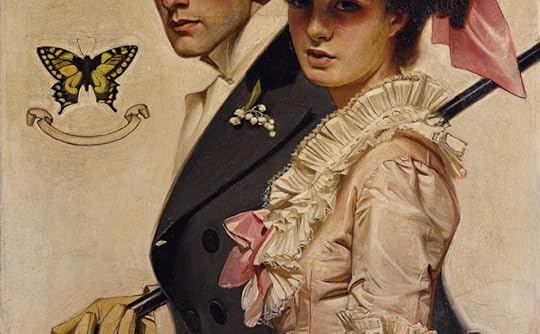
Love is all around! On podcasts as well as holidays… In this episode, Jacke talks to USA Today bestselling author Mimi Matthews about her love for the Victorian era and how that fueled her latest work, the historical romance The Siren of Sussex, in which an ambitious equestrienne teams up with a devastatingly handsome half-Indian dressmaker to take London society by storm – unless their professional plans are thwarted by their amorous propensities toward one another. Jacke also checks in with friend of the show Margot Livesey about her first reading of the classic biography Life of Johnson by her fellow Scot, James Boswell – does it still hold up? And finally, Jacke throws a bone to love’s wretched dogs, who might find some company in the misery of ancient Rome’s Catullus, whose love for “Lesbia” placed him on the knife edge between self-loathing and despair.
Additional listening suggestions:
In love with love? Pain turns to loving pleasure in Episode 95 The Runaway Poets – The Triumphant Love Story of Elizabeth Barrett Browning and Robert Browning.Still in love with love? Try Episode 130 The Poet and the Painter – The Great Love Affair of Anna Akhmatova and Amedeo Modigliani.No one to love but yourself? Join us for a look at Oscar Wilde, Ovid, and the Myth of Narcissus (with novelist Natasha Joukovsky) in Episode 337.Help support the show at patreon.com/literature or historyofliterature.com/shop. The History of Literature Podcast is a member of Lit Hub Radio and the Podglomerate Network. Learn more at www.thepodglomerate.com/historyofliterature.
April 10, 2022
The History of Literature #381 – C Subramania Bharati (with Mira T Sundara Rajan)
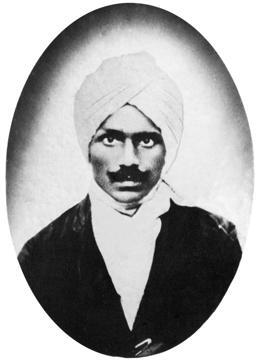
C. Subramania Bharati (1882-1923) is one of the greatest poets of the twentieth century. Known to his fellow Tamils as the “Mahakavi” (“Supreme Poet”), his works modernized and rejuvenated Tamil literature. Bharati, who knew several languages, also wrote in English, and it is in these writings that one can see and appreciate his range of interests, the depth of his thinking, and his passionate advocacy for social reform. In this episode, Jacke is joined by Bharati scholar Mira T. Sundara Rajan, editor of The Coming Age: Collected English Writings of C. Subramania Bharati, to discuss the poet’s life and legacy. Professor Rajan is also the host of the Bharati 100 Podcast, which explores the life and work of Bharati in commemoration of the 100th anniversary of his death.
Additional listening ideas:
Like poetry? Professor Anahid Nersessian told us about her love for John Keats in Episode 306 – Keats’s Great Odes.Prefer twentieth-century poetry? Try our episode on T.S. Eliot and The Waste Land.Poetry not your thing? You might like our episode on Jorge Luis Borges or our talk with Radha Vatsal about History and Mystery.Help support the show at patreon.com/literature or historyofliterature.com/shop. The History of Literature Podcast is a member of Lit Hub Radio and the Podglomerate Network. Learn more at www.thepodglomerate.com/historyofliterature.
April 9, 2022
The History of Literature #380 – Ian Fleming | PLUS The Black James Bond
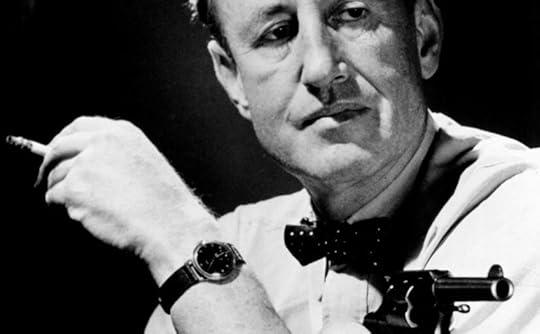
Ian Fleming (1908-1964) always wanted to be a writer. Not an “author,” as he put it, and not someone in the “Shakespeare stakes,” but someone who wrote for money and pleasure. In developing his enduring character James Bond, he managed to accomplish both. In this episode, Jacke takes a look at the life and career of the most famous spy novelist in history. PLUS we look at an American spy novel, Sam Greenlee’s The Spook Who Sat by the Door, which was poised for success – until some terrified authorities shut it down.
Additional listening ideas:
Like genre fiction? Try our episode on classic crime novels with Hard Case Crime editor Charles Ardai.Really like genre fiction? We talked about reviving (and revising) Westerns with Anna North.Fan of twentieth-century British novelists? Maybe try our episode on Roald Dahl or our look at Graham Greene’s The End of the Affair with Laura Marsh.Help support the show at patreon.com/literature or historyofliterature.com/shop. The History of Literature Podcast is a member of Lit Hub Radio and the Podglomerate Network. Learn more at www.thepodglomerate.com/historyofliterature.
April 8, 2022
The History of Literature #379 – Gwendolyn Brooks | Bharati Preview 2 (with Mira Sundara Rajan)

When the poet Gwendolyn Brooks “writes out of her heart, out of her rich and living background, out of her very real talent,” said The New York Times, “she induces almost unbearable excitement.” From her “headquarters” in Chicago, Brooks spent her life writing poems about the joys and struggles of the Black Americans on the streets around her. A consummate artist with full command of her craft, along with an insatiable curiosity and a deep well of empathy, Brooks produced more than 20 volumes of poetry and other works over the span of a 70-year publishing career. She was the first Black person to win the Pulitzer Prize (in any category); the first Black American woman to be inducted into the American Academy of Arts and Letters; a national poet laureate; the poet laureate of Illinois for 38 years–and those are just some of her many accomplishments and honors. In this episode, Jacke takes a look at the life and works of this indelible American poet. PLUS we get another visit from Professor Mira Sundara Rajan for a sneak preview of our forthcoming episode on the “Supreme Poet” C. Subramania Bharati.
Additional listening suggestions:
We looked at another great Black American woman writer of the twentieth century in Episode 310 – Lorraine Hansberry.Two of Gwendolyn Brooks’s forerunners took center stage in our episode on the friendship between Zora Neale Hurston and Langston Hughes (with biographer Yuval Taylor)..We looked at a great poetic love story (but one with a surprising twist) in Episode 95 – The Runaway Poets – Triumphant Love Story of Elizabeth Barrett Browning and Robert Browning.Help support the show at patreon.com/literature or historyofliterature.com/shop. The History of Literature Podcast is a member of Lit Hub Radio and the Podglomerate Network. Learn more at www.thepodglomerate.com/historyofliterature.
April 7, 2022
The History of Literature #378 – Liu Xinwu and the “Scar Literature” of China (with Jeremy Tiang) | Bharati Sneak Preview (with Mira Sundara Rajan)
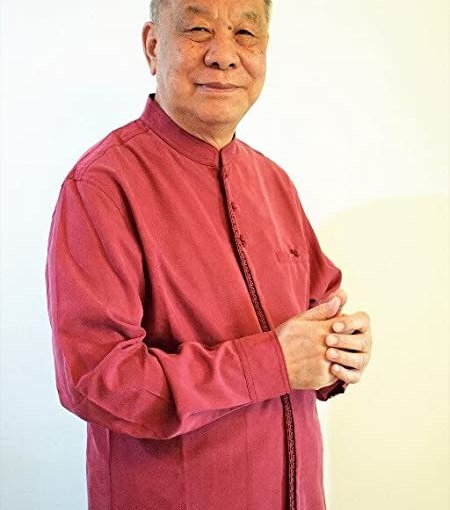
In this episode, Jacke talks to Jeremy Tiang about his new translation of The Wedding Party, a Chinese classic contemporary novel written in the early 1980s by Liu Xinwu, one of the originators of what has been termed “scar literature.” PLUS we feature a sneak preview of our conversation with Professor Mira Sundara Rajan, who has edited a collection of writings in English by famed Indian poet C. Subramania Bharati.
Looking for more by Chinese authors? We talked with Yang Huang about her childhood in China (and why she now can only write fiction in English) in Episode 330 Middlemarch (with Yang Huang).
Like world literature? Try Episode 304 Kazuo Ishiguro (with Chigozie Obioma), in which we talk to Obioma about his novels set in Nigeria and his love for Ishiguro’s Remains of the Day.
For something completely different, try our episode on Top 10 Literary Villains.
Help support the show at patreon.com/literature or historyofliterature.com/shop. The History of Literature Podcast is a member of Lit Hub Radio and the Podglomerate Network. Learn more at http://www.thepodglomerate.com/historyofliterature.
April 6, 2022
The History of Literature #377 – The Brothers Grimm | Jeremy Tiang Sneak Preview
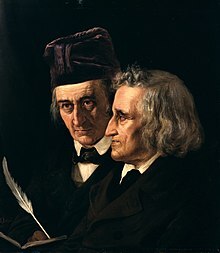
Snow White, Sleeping Beauty, Rapunzel, Rumpelstiltskin, Cinderella, Hansel and Gretel, Little Red Riding Hood… Oh sure, we all know the stories, but do we know their origins? What do they tell us about the “Germans” of the nineteenth century – and how do they compare with the fairy tales told in France or Italy, or the ones we tell today? In this episode, Jacke takes a look at Germanic linguists and folklorists Jacob and Wilhelm Grimm and their most famous project, Grimm’s Fairy Tales, or as it was originally called, Kinder- und Hausmärchen (Children’s and Household Tales). PLUS we have a sneak preview of our conversation with Jeremy Tiang, translator of the Chinese contemporary classic The Wedding Party, by Liu Xinwu.
Additional listening ideas:
Like Children’s Literature? Try our episodes on Roald Dahl or Beatrix Potter.Gaga for Germans? Try our episode on Thomas Mann’s Magic Mountain.In the mood for something different? Check out The Forbidden Stories of North Korea.Help support the show at patreon.com/literature or historyofliterature.com/shop. The History of Literature Podcast is a member of Lit Hub Radio and the Podglomerate Network. Learn more at www.thepodglomerate.com/historyofliterature.
April 5, 2022
The History of Literature #376 – Why John Milton? (with Joe Moshenska)
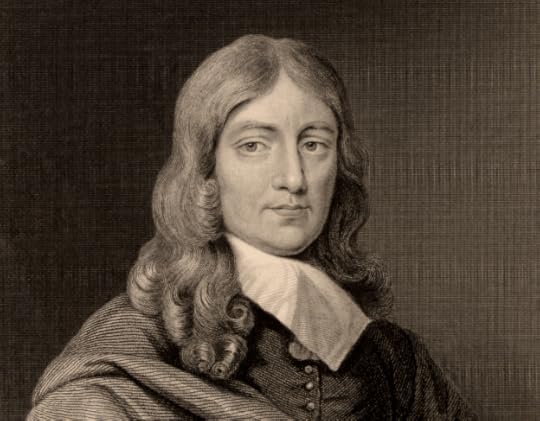
Yes, John Milton was important, and yes, Paradise Lost has been part of the canon since the 17th century – but why should we read anything by John Milton today? Do we imbibe his poetry like medicine? Is it a slog through cerebral but sterile prose? Or is there something wilder, more compelling, more alive? In this episode, Jacke talks to biographer Joe Moshenska, author of Making Darkness Light: A Life of John Milton, about the poet beloved by everyone from Virginia Woolf to Jorge Luis Borges to revolutionaries all over the world.
More listening ideas:
Want more Milton? We’ve got you covered in Episode #154 John Milton.
Ready for more wild poetic visions? Try our episode on William Blake.
Poetry not your thing? Check out our interview with Samantha Silva about the life of Mary Wollstonecraft.
Help support the show at patreon.com/literature or historyofliterature.com/shop. The History of Literature Podcast is a member of Lit Hub Radio and the Podglomerate Network. Learn more at http://www.thepodglomerate.com/historyofliterature.
April 4, 2022
The History of Literature #375 – The Power of Literature | PLUS Reading Boswell’s Life of Johnson (with Margot Livesey)

Jacke had big plans to make this episode all about the poetry of William Butler Yeats…and then listener feedback to the last episode overtook him. So instead of lazing about on the Lake Isle of Innisfree, he returns to the subject of Sophocles and the power of literature, as introduced in the conversation with Bryan Doerries, the Artistic Director of Theater of War Productions. After checking in with Friend of the Show Margot Livesey as she reads Boswell’s Life of Johnson, Jacke turns to a special message from a longtime listener whose own life had been changed by the work that Bryan and his theater company do. We hope you enjoy this special episode devoted to the power of literature.
Help support the show at patreon.com/literature or historyofliterature.com/shop. The History of Literature Podcast is a member of Lit Hub Radio and the Podglomerate Network. Learn more at http://www.thepodglomerate.com/historyofliterature.



